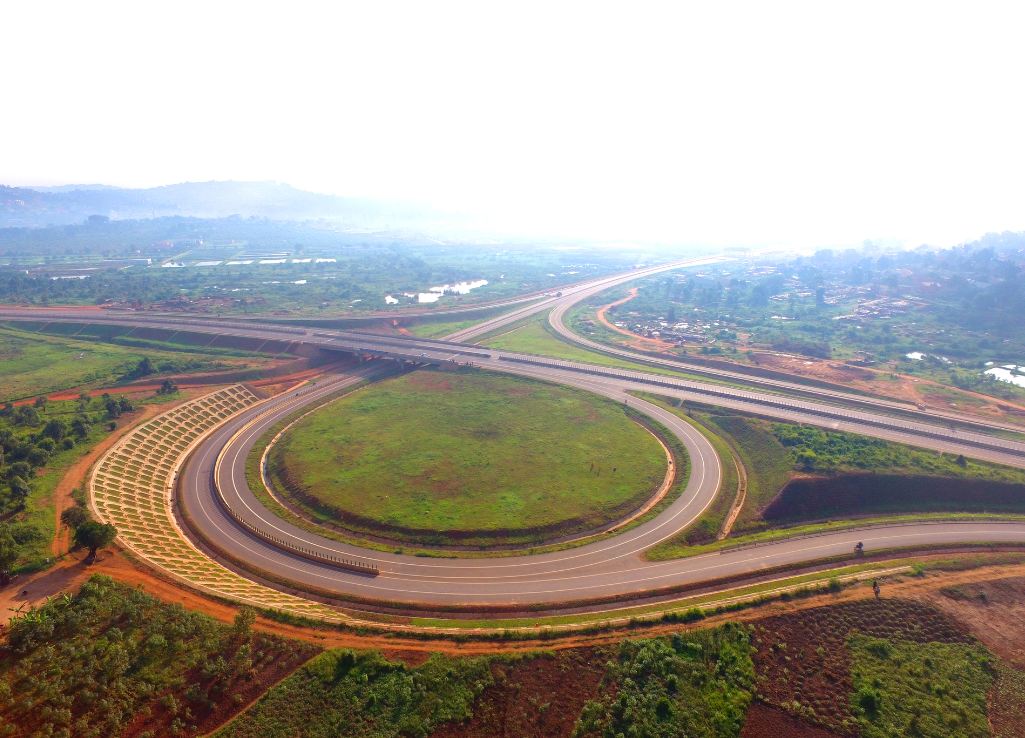Chinese funding to nourish fertilizer plant in Uganda

A Chinese-invested phosphate fertilizer plant, which is believed to be the first such plant in East Africa and marks the first phase of a 2.8 billion yuan ($410 million) industrial park in Uganda, is scheduled to start operations on Oct 23.
The plant will use poly metallic mineral resources in Sukulu, Uganda, and have an installed capacity to produce 100,000 metric tons of fertilizer every year, said Lyu Weidong, chairman of Guangzhou Dongsong Energy Group Co, the main investor of the China (Guangdong)-Uganda International Industrial Cooperation Park.
The park, located in Tororo district, is 180 kilometers from the Ugandan capital, Kampala, and close to the nation's border with Kenya to the east.
A steel mill, also the first in East Africa and capable of rolling out 350,000 tons of steel products a year, is expected to start production in July next year, Lyu said.
The complex, covering an area of 1,800 acres, will include a glass plant, a yellow phosphorus plant, as well as crop farms, which include coffee, tea and rice farms and use the fertilizer made in the park. It will also include a machinery maintenance plant and a testing center catering to the entire East African region.
A burning-free brick factory will be installed to recycle the tailing from the beneficiation plant, slags from steel mills and quartz sand from the glass plant.
Excessive heat from the steel plant will be used for residential heating and speeding up brick molding. The coal gas from steel production will be reused within the steel plant and some other plants. Both residential and industrial waste water will be treated and recycled within the park.
"We will not sacrifice the environment for any short-term economic benefit," Lyu said, adding a circular economy has been encouraged by the Chinese government.
The complex will benefit local employment in the agriculture-dominant country, creating at least 2,500 jobs in the projects in the park and about 2,000 jobs in supporting sectors, he said.
When completed in 2020, the park will generate total output of about 3.5 billion yuan.
The park is listed as a key project of the Uganda Vision 2040 program, he said. The program envisions for "A Transformed Ugandan Society from a Peasant to a Modern and Prosperous Country within 30 years."
The project is ideally placed to capitalize on the rich mineral resources in Uganda and is adjacent to a number of neighboring countries, said Liu Jisen, executive dean of the Institute for African Studies of the Guangdong University of Foreign Studies.

A view of the Entebbe–Kampala Expressway, Uganda, Sept 8, 2017. [Photo/Xinhua]
MOST POPULAR
- 1 China to give visa-free treatment to another 9 countries
- 2 China fully opens manufacturing sector to foreign investors in landmark opening up move
- 3 China's import expo attracts record-breaking participating countries, exhibitors
- 4 China's door opening even wider to foreign visitors, businesses
- 5 China revises rules to ease foreign strategic investment in listed firms
Editors' Picks
 Video:
Peru sees new port open
Video:
Peru sees new port open
 Infographic:
China's public holidays for 2025
Infographic:
China's public holidays for 2025
 Infographic:
Basic facts of APEC
Infographic:
Basic facts of APEC
 Infographic:
Wrapping up the 7th CIIE: Data recap
Infographic:
Wrapping up the 7th CIIE: Data recap



